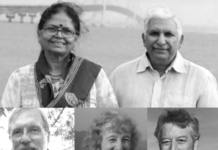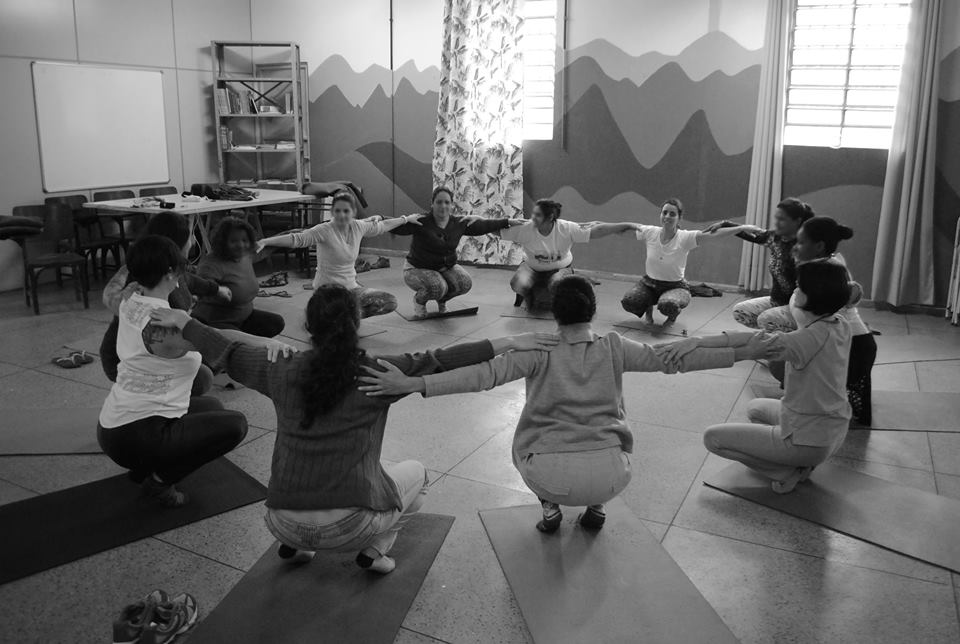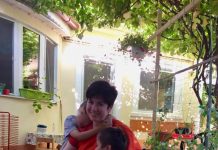As long as people do not take humanitarian measures for criminals, it is simply absurd to leave them resting uselessly in prisons. The prison environment must be purer, more humane”.
(Shrii Shrii Anandamurtii, Human Society – part 1)
With this quotation of Baba in mind, a group of yoga teachers are making a difference in Porto Alegre. Anuradha (Ana Accorsi), Biana Lauda, Avadhutika Ananda Sushiila Acarya, Nandinii (Naíla Andrade), Nityá Devii (Nidia Marília) and Raginii (Renata de Lima) are giving classes in a female wing of a prison in the city. The idea arose in 2015, but due to bureaucracy, work began only in the middle of last year. Currently, they receive between 6 and 16 students each week, who go by their own volition, with different degrees of attendance.
The group is available to go to the penitentiary once a week to attend to a specific wing, which is isolated from the others for safety reasons—that of women who have committed crimes against children. It seems difficult, but not for those who do their work with heart. “Prison reality, for most of us, is a blur. I had never been in a penitentiary, ” says Anuradha. She explains that because she was not familiar with that reality, she had created a series of fantasies. This, however, changed after the project began. “We started to meet women whose lives were marked by many types of violence.”
This experience made Anuradha aware that she too could have been in that situation were it not for the social privileges she enjoys. “They are, for the most part, black, poor slum dwellers with little education. Women, when imprisoned, are often abandoned by their partner and family. They are forgotten, as well as being abandoned by the state. The person commits a crime, of whatever seriousness, and disappears from sight, where we do not see them any more, ” she says.
As a way to reverse this cycle of abandonment, the group of yoga teachers put emphasis on affection. “When you get there and pass through all the doors and the body searches, it seems that, at the same time, we are giving up our prejudices. They already have a lot of people who judge them. Affection is what we have to offer, ” she says. In this context, the practice of yoga emerges as a form of personal empowerment. “We always try to foster the understanding that through our inner strength we can be well, regardless of where we are. It is possible to have a better quality of life and to flourish despite that negative situation, “says Nitya.
One of the challenges of the project is to maintain attendance because, despite the commitment to be in prison once a week, cancellations are frequent. The reason? The lack of an officer to accompany them, being occupied with some other duty at that time. The discomfort caused by this kind of setback clashes with the team’s plans for the project, such as having an on-site room designated for yoga, decorating it with plants, and creating a library for self-awareness and yoga.
According to Didi Ananda Sushiila, however, the lack of a designated room does not prevent them from experienced deep peace in the room where the practices are being performed. “It does not look like we’re in a prison — it’s a special space. When we arrived for the first class, we had a little fear, but when it was over, it was exciting, and we cried with joy for having been able to do this work. They are also our sisters and with them we can share this wonderful yoga practice. ”
The main line of work is yoga, but the teachers use various tools, such as circular dances, conversation, and healthcare practices. Conversation, by the way, is a very important part of the meeting, because it is when the women feel heard. And as a way of respecting diverse beliefs, the project introduces some practices in a subtle and gradual way; for example, they have not yet introduced the baba nam kevalam mantra.
According to Anuradha, some women report practicing what they have learned, and she herself has already noticed some positive changes. One woman, in particular, drew her attention: “She has participated many times, and you can see her countenance becoming calmer. I can see her interacting more consciously, more conscientiously. ” According to Nitya, “they feel free during the practice and they perceive the benefits – we notice how good they feel afterward.”
Anuradha recommends that if people from other cities are inspired to do this type of work, they write a project proposal and present it to the local penitentiary. And for those who are interested in contributing in some way to the project, they can write to projetoliberdades@gmail.com
Editorial Staff
Do you want to recommend a project for #dharmapracar? Write us at journal@d4all.org.








I know this web site offers quality dependent articles or reviews and other material,
is there any other website which gives such data in quality?
Namaskar! Thank you for following us and for your comment about the quality of the articles!
There are many articles on the web, we have selected a few to share, but there are many, many others!
https://journal.d4all.org/2018/06/8-sites-for-anyone-who-wants-to-spread-babas-philosophy/